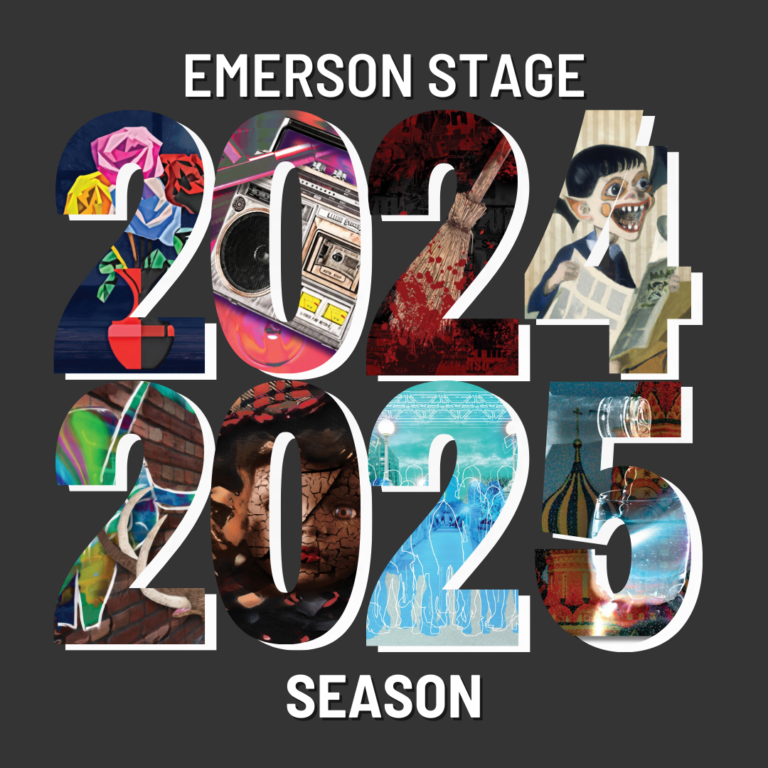A Constellation of Moments
by Magda Romanska
The trouble is
I can’t make sense of my life at all.
I can’t see a beginning and a middle and an end
It seems to me to be just a bunch of random vivid moments
I think, when I am on my deathbed,
I won’t look back on a story of my life
I’ll just remember a constellation of moments
vivid moments
but just that.
– Charles Mee, “Café le Monde”
In our precarious world of virtual friends appearing and disappearing under our fingertips at the click of the mouse, SITI Company is something akin to a miracle. Founded in 1992 by Anne Bogart and Tadashi Suzuki to redefine and revitalize contemporary theater in the United States through an international collaboration, SITI has just celebrated its 20th anniversary.
I have been working with the group on Café Variations for six weeks now. As a bona fide lifelong social outcast, I’ve doggedly trained myself – by desire and necessity – to descry the most diminutive movements: the elusive twitching of one’s eyelid, the subtle smirk at the corner of one’s mouth, the furtive glances, sudden silences, subdued signs and stealthy stares, the entire shadow game of our past passing through our bodies and our faces. The skill can be both a blessing and a curse for the dramaturg. I dubiously pride myself on being able to read with paranoid precision all of that inconspicuous symphony of micro-gestures that shamelessly betrays our history: recoiled-from love affairs, thwarted ambitions, the quotidian discontents of our lives.
Like any group of people who have known each other for over two decades, I expected SITI to carry its own history, but I can discern none of it. We have been working together now for six weeks, and the invisible incessantly eludes me. In the rehearsal room, there is no past; there is even no future. There is only the present moment, the now, the immediate. Every rehearsal room aspires to create that unbearable lightness of the present moment, when both past and future are shed like street clothes, but SITI turns being in the present into an art . . . a metaphor for theatre and for life . . .
The history of Western drama is invariably connected to Western man’s ontological and epistemological predicament – we construct meaning out of our lives in the same way we construct our dramas: following the Aristotelian model. According to Aristotle, the Greek philosopher and the first dramaturg, a well-structured play should have a beginning, a middle and an end. In this model, the meaning of the drama comes from the well-defined progression of deliberately arranged narrative elements: exposition, conflict, climax, denouement, catharsis. However we choose to create meaning in our lives – through love, sex, God, family, intellectual, artistic, altruistic or hedonistic pleasures – we follow Aristotle’s narrative structure, with a redemptive narrative and hope for a cathartic death at the end. This is particularly true for Americans, the eternal optimists compulsively making sense out of the most random, violent, senseless events – no death can go unredeemed, with foundations, memorials or new laws proudly flying in the face of the cosmic meaninglessness of it all.
But that is not how our lives are: old love affairs end with no poignant closure; unresolved friendships we’ve lost on the way to better pastures find no redemptions; lost letters, forgotten people, meaningless tragedies and moments of pure eudemonia appear and disappear with no higher purpose, out of nowhere and for no reason. Our lives are made up of a constellation of moments, with no promise of catharsis. The elusive connection between our dramatic tradition and our existential predicament is perhaps the reason behind the luxating anxiety we feel when theatre postpones the alembic gratification.
Café Variations is constructed from a constellation of moments from many lives, some arranged into stories, with a beginning, middle and end, others left unresolved, without closure, without meaning. The denizens of the café move through each others’ lives abruptly and on the sly, cruelly and gently, torn and lost, trying to both hold on to and escape one other, driven by love, fear and desire. Leaving and moving on, driving each other crazy, violently yearning for human touch, and megalomaniacally indulging in the solipsistic pleasures of rejection, they seduce, comfort, amuse and savage each other. We, the Tellurian creatures vis-à-vis our serendipitous universe. If you leave our café with one thought, perhaps let it be this one: there might be no grand meaning to our existence – perhaps “all of this happens by chance, by pure chance” – perhaps our lives are just that: “a constellation of moments” – but so what? Maybe this realization is as tragic as it can be funny. Maybe neither happiness nor unhappiness has to make sense. Maybe it is still all all right . . .
*****
Magda Romanska is the Dramaturg of Café Variations and an Assistant Professor in the Department of Performing Arts at Emerson College.

